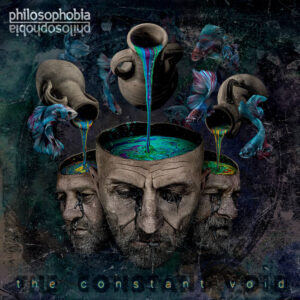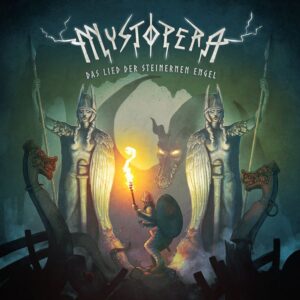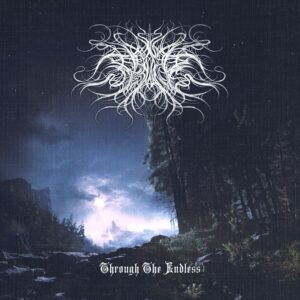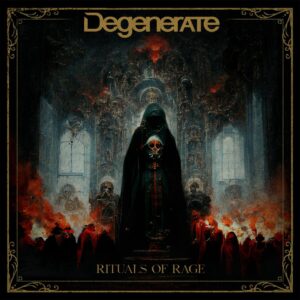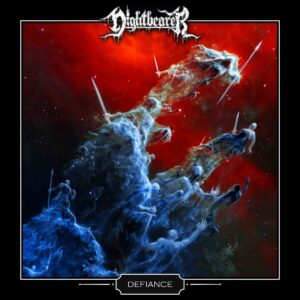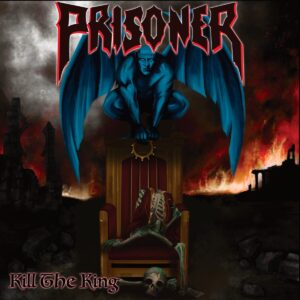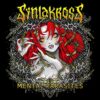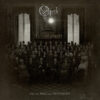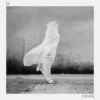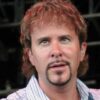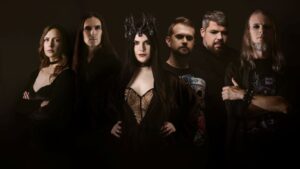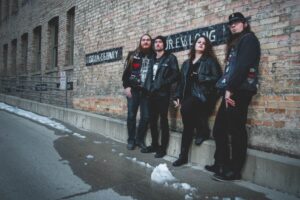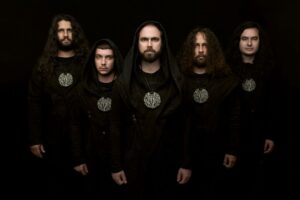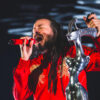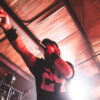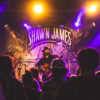Vidarr
Legendry
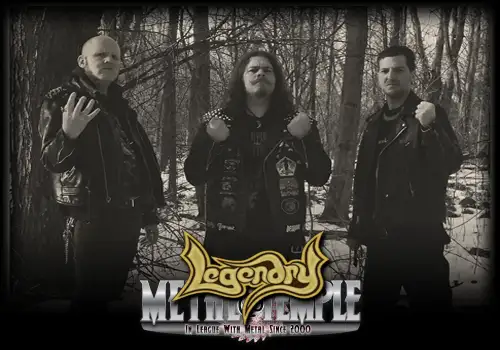
I've been well! It's great to finally have the work we've been doing come to light.
We did take longer to prepare this album; however, that was not initially by design. The longer gap between this album and "Dungeon Crawler" has more to do with securing studio time and the wait for vinyl pressing than to do with taking longer to record. In fact, the recording process was much faster than with the previous album, in terms of actual time spent tracking. We are quite happy to have found support in High Roller Records for this release, and they have been great to work with in every step of this journey. It is our hope that with their backing, we will reach a greater audience, and that our music will find its way to fans of true, epic metal more easily.
As I began thinking about how to approach writing the lyrics for this album, I was watching a documentary about Rush. The documentary landed on the topic of Neil Peart's lyricism, and showed images of his original lyric sheets, containing prose introductions. I immediately paused the film, and sat down to write my first novelette, "The Wizard and the Tower Keep", of course with Rush's "Caress of Steel" on headphones. The result of that evening (which quickly turned into the early morning hours), was the first several thousand words into the saga which began in "Mists of Time" and "Dungeon Crawler". While those previous albums' inspiration was drawn, primarily, from the works of Robert E. Howard, I had included several songs dealing with a nameless, faceless protagonist: one which the listener could imagine as themselves.
Moving forward into this most recent album, I wanted to create a concept album, as I have always been a fan of albums of that nature. Picking up from where I left of with "Dungeon Crawler", I have continued the story in "The Wizard and the Tower Keep". Currently, the novelette can be found in the anthology, "Fierce Tales: Savage lands", published by Millhaven Press. This book also features the Warrior with No Name and the wizard antagonist, Vael, on the cover, which I painted much the same as the album cover art. In recent months, I have written the next story in this saga, entitled "Beyond the Mirrors of Faellnoch", which will be published by DMR Books in their Swords of Steel Omnibus anthology.
In the case of the plot of "The Wizard and the Tower Keep", I am aiming for pure escapism and adventure, as with the stories of Robert E. Howard. Within these tales one may find bits of philosophy on life and the functions of both the ancient and the modern "civilized" world. As the warrior ascends the Tower Keep in this tale, he observes a continuous carving (like the friezes of ancient Greece and Rome) which depicts the histories of the world has stumbled upon. He wonders to himself, as an outsider, how this realm has suffered unnecessarily at the hands of greed and will to domination.
Yes, including a heavy dose of 70s Progressive Rock was entirely by design. When I set about to writing music for Legendry, I think to myself what bands many of my favorite metal bands of the 80s would have been listening to. During writing periods, I tend to listen only to music from the 70s, and draw inspirations from there. During the writing of this album, I was listening to a lot of Jethro Tull, which may explain some of the Folk Rock elements (and the inclusion of acoustic guitars and mandolin, especially).
I took a long break from listening to the album after the mixing and mastering process, mainly because by that point I heard it countless times. Upon returning to the album a few months later, I am very happy with the finished result. I find that I get the epic, grandiose feeling that the band had envisioned the album to take on. Achieving a sound that is larger than life was certainly the goal, and I feel that with all the elements combined (from the artwork, to the instrumentation, to the overall sound), it achieves that on some level. We can only hope that our audience gets that same overwhelming effect from it.
I believe that we have quite a bit more to explore in the way of including progressive elements in our work, and that we can push this aspect further in our subsequent works. While I appreciate the comparison to Opeth, and how they have turned down the path of progressive music, I think that our route will take us into different realms, musically.
I do think that many of the larger, more mainstream metal bands end up losing the original feeling of true heavy metal in their pursuit of crystal-clear production and digitally perfected performances, in addition to being overly invested in technical intensity. We tend to write more to the feeling of the music, than how many notes we can play in a short time span. I think it goes back to influences, in many cases. As a musician and as a listener, I am far more interested in the guitar work of someone like Richie Blackmore or Tony Iommi than the more recent stylings of progressive/technical metal. While I do not deny the talent present, it's just not an aesthetic that appeals to me. I do not aim to recreate the sounds of the past, but the feeling I get when I listen to the great music of the past. What I try to do with Legendry, without sounding like a throw-back novelty, is to create works which would fit in with the albums of the past that I hold in high regard.
I think many miss the mark when it comes to truly reaching an audience in this way, and I can only hope the music Legendry writes comes close to doing so. I think that this can be traced, potentially, to the approach and again, the well of influences drawn from.
One thing that made writing the album unique was that the songs were written in the order they appear on the album (and also, in conceptual order). For this reason, there is a notable progression from one song to the next. While I handle the lyrical aspect of the band myself, Legendry is, musically, a democratic band. Typically, when writing, one of us will come up with a group of riffs, or a rhythmic pattern, and we will improvise on those beginnings to develop our songs as a band.
We were very happy and honored to work with Arthur Rizk (Eternal Champion, Sumerlands, etc.) at Creep Records Studio on tracking the album. The main tracks of the album (rhythm guitar, bass, and drums) were recorded live in the studio, so that can account for a lot of the old school feel to the album. We used only real drums and vintage tube amplifiers as well, so there is no modern trickery in the sound captured. After these main tracks were recorded, I returned a few weeks later for vocal sessions and to track the acoustic instruments, and then spent time in my home studio on overdubs (guitar solos, violin, keyboards, and sound effects/field recordings). We tried to capture the most realistic sound, and keep the performances organic. We did not use a click track, and simply let the song tempos set themselves, occasionally fluctuating as they might in a live performance. While the Mellotron and Hammond Organ were VST instruments, they were played live on a keyboard and not programmed.
I believe that this approach to making the album does reflect Legendry in the manner we have always intended, and it far surpasses our previous recordings in this regard.
From the beginning of the writing process, I wanted to find a way to come back the "The Bard's Tale" at the end, as a kind of bookend to the album. From there, the opening instrumental portion of the track came from an improvisational jam, and the main body of the song flowed from that. At that point in writing, we needed a way to bridge the gap to make it, musically, back to "The Bard's Tale". The song has definitely become one of my favorites that we have written. I think that the edge between fierce and atmospheric is just something stumbled upon. It seems that, once inspiration strikes, songs like these write themselves, and find their own path.
Yes, there were. We have dedicated the album to Mark Shelton, in the liner notes of the release. The song "The Lost Road", while referring to a secret underground passageway leading into the Tower Keep in the story, also references the loss of Mark Shelton and the "lost" (Manilla) Road. We had the honor of opening for Manilla Road on their 40th anniversary tour of the U.S., and the encouraging words Mark and Hellroadie had for us are still with me and have served to drive us onward.
Yes, I did want to ensure that, while we were writing a concept album, that the songs could stand on their own, and not depend on being heard within the album exclusively. In terms of branching out further, we shot our first music video for the song "Vindicator", which was our first experience working in this medium, and certainly not to be our last. I have also always done all of the visual imagery for the band myself, from the band logo, to the paintings for the album art, and even most of the T-shirt designs, so there are already quite a few mediums covered.
We plan to support the album locally, and have hopes to make some festival appearances in 2020, but our personal lives make it difficult to consider a traditional tour.
Thank you for your time as well! I enjoyed your questions.
More results...
